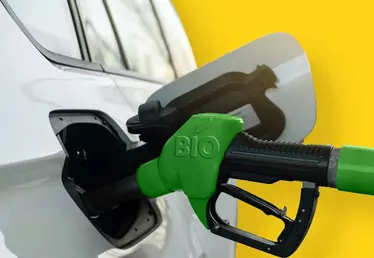

Hero banner custom title
You can now produce your own biogas from home!
3 min
The process invented by an Israeli start-up converts the remains of meals into gas for cooking, and into fertilizer! A 100% circular innovation that means anyone can produce their own gas.
What if you could produce natural gas at home from your organic waste? And what if we could prepare dinner with the energy produced from the remains of lunch? This is what the Israeli start-up HomeBiogas is offering with its domestic digester.
1kg of waste = 1 hour of cooking. HomeBiogas can gobble up as much as 6 liters of food waste (or 15 liters of manure) per day.
1 kg of food waste produces 200 liters of gas - the amount needed for one hour of fast cooking, and produces liquid fertilizer for the garden too.
The inventors of the device claim that it can eliminate one tonne of organic waste per year and reduce users’ CO2 emissions by six tonnes – equivalent to the consumption of a car.
How does it work? By anaerobic digestion - a natural biological process that breaks down organic matter in the absence of oxygen. Fermentation produces a gas rich in methane, called biogas. Municipalities, manufacturers and farmers have long been producing biogas from organic waste (agricultural by-products, sewage sludge, etc.). Individuals, for their part, sometimes transform some of their waste into fertilizer via composting, but have not been able to make use of anaerobic digestion in order to produce energy.
Homemade natural gas
HomeBiogas makes this process accessible to everyone. The eponymous start-up has developed a system specifically designed for domestic use, which makes it easy to produce biogas on the scale of a household scale. The device, in which you just have to put your leftover meals (vegetable peelings, dairy products, meat fat and bones, etc.) or manure, is connected to the cooker in the house so that the gas produced can be directly used for cooking.
The digester can be installed in a couple of hours and is discreetly located at the bottom of the garden. HomeBiogas recommends using an authorized technician to connect the gas hose to the cooker and specifies that the system operates optimally when the temperature is around 17°C. Selling at $1,090 (around €1,050) all over the world, it would pay for itself - according to company’s calculations - in three years...
In addition to allowing families to reduce their carbon footprint, HomeBiogas is an innovative solution that can provide energy for people living in remote rural areas. In 2015, the start-up installed about forty digesters in the Palestinian village of Al-Awja as part of a project financed by the European Union.
Image credits © HomeBiogas











